Disruption as a catalyst for change? Perceptions and approaches of teaching academics during COVID-19.
Contact: Associate Professor Chris Deneen
Generating widespread, meaningful changes to higher education curricula is notoriously difficult in institutions where disciplinary ties and signature pedagogies are strong. The universal, severe and ongoing disruption to the sector owing to the COVID-19 pandemic has forced many academics to adopt new, often unfamiliar, practices in their teaching and curriculum. Although opportunities for sustained curriculum change have emerged, it is critically important to understand the nature of, and variation between, the specific experiences and responses of those teaching the curriculum.
We examined the experiences of academics and their approaches to teaching during early 2021. Utilising the relational 3P model of Trigwell and Prosser (2020) as a guiding framework, we analysed how the disruption may have impacted each part of the model across our study cohort.

Online assessments in tertiary music classes: A systematic review
Contact: Associate Professor Chris Deneen
The challenge to teach music online is complex and multi-faceted; learning the creative art of music requires a supportive teacher and appropriate learning tasks and/or assessments. Research studies have identified that the use of technology is an effective tool to support student development of music knowledge and skills.
Prior to January 2020, less than 15% of Australian university music programs offered online music learning. The shift to online learning during COVID-19 resulted in many tertiary music instructors quickly adopting online music assessments.
Such transitions to online require an understanding of assessment alignment to learning objectives as well as appropriate technology adoption that supports inclusivity, curriculum differentiation and musically-supportive assessment and feedback. Given this context, understanding the degree to which specific online music assessments meet associated student learning outcomes is critical.
This project undertakes a formal systematic review with meta-analysis to identify research-informed online music assessments, enabling better-informed decision-making processes for instructors whose informed assessment choices can enhance the experiences for the students who complete them.
Read More >
SAAGES (South Australian Academy for Gender Equity in STEM)
Contact: Dr. Florence Gabriel
Delivered by the University of South Australia (UniSA) in partnership with leading South Australian companies and schools, the South Australian Academy for Gender Equity in STEM (SAAGES) enhances career pathways for women and helps them to reach their full career potential. It also assists STEM workplaces to become workplaces of choice for women. This project will design, develop and roll out a new program within the SAAGES portfolio that will provide high a high quality career development and mentoring program for women choosing to pursue a STEM career in the entrepreneurial or ‘start-up’ space.

Careers Compass
Contact: Associate Professor Simon Leonard
Preparing for careers is a cornerstone of education, but students now need to grapple with changing and complex futures. The University of South Australia Careers Compass project designs and delivers scalable and sustainable programs that assists young people in Years 6 to 9 to develop the competencies of the Australian Blueprint for Career Development.
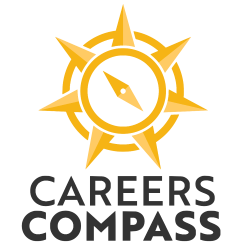
SenseAI
Contact: Professor Maarten de Laat
The role of AI in the Education and Corporate sector. This project investigates the current and future impact of artificial intelligence (AI) on education and corporate sector. The aim of the project is to document current practices and provide likely pathways forward for the adoption of AI in organizations.
Analyzing the enablers and barriers of effective adoption of AI to support knowledge processes and learning & development in organizations in the corporate sector.
Read More >
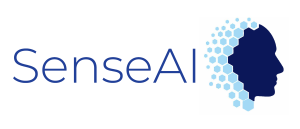
The contribution of creative confidence to closing the gender gap in STEM
Contact: Maria Vieira
This research explores the role of creativity, and more specifically creative confidence, as a key mechanism to support the reduction of the gender gap in Science, Technology, Engineering and Maths (STEM. With the support of industry partners, we provide schoolgirls across South Australia with an authentic context to develop their creative confidence by rethinking real-world STEM problems applying the Design Thinking methodology. An important premise of this project is that creative confidence can be taught, providing substantial and measurable benefits to women along the entire STEM pipeline, from primary school to senior careers.
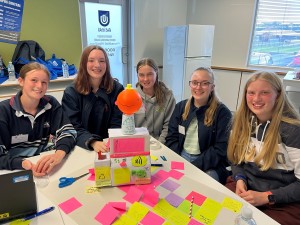
AI Playground
Contact: Professor Maarten de Laat
Schools today are not ready to produce the future workforce capable of entering an AI driven market. The AI Playground is a digital learning environment that helps educators to bring AI into the classroom. The AI Playground offers students a way to learn with together with AI to solve complex problems that humans struggle to solve on their own. This is done by providing students with challenges. These challenges encourage students to take ownership over AI, play with it and develop AI to follow their imagination.
Read More >
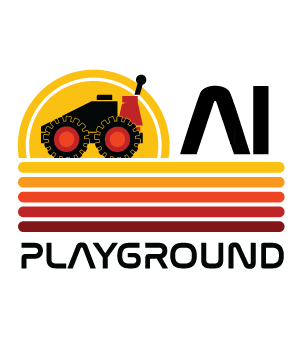
Data for AI Infrastructure
Contact: Dr Srecko Joksimovic
Humans working collaboratively with cognitive technologies is now evident in all aspects of society, including healthcare, business, and government. C3L and Comunet Pty Ltd signed a Master Services Agreement to develop secure, cloud-based, scalable, and collaborative platform for seamless integration of learning analytics and AI.
This agreement establishes stronger collaboration between two partners that was initiated in 2019. Building on the Amazon AWS Accelerated Data Lake infrastructure, Comunet Pty Ltd and C3L deployed a robust analytics infrastructure. The solution (Figure 1) provides:
- structure and scalability – highly available with all critical services deployed across multiple availability zones;
- near real-time data ingestion and curation, with full data catalog of records and record types;
- built-in ability for data enrichment, utilizing native AWS machine learning and analytics services;
- seamless integration with variety of learning management systems (e.g., Canvas or edX) and third-party tools (e.g., OnTask, RShiny-based visualizations);
- security – the solution is built on the AWS Landing Zone pattern, having 8 configured accounts, where each account has a preconfigured role (e.g., user management or backup), with the intention that should needs expand more accounts can be easily provisioned for future projects.
This cloud-based infrastructure will serve as the foundation for more sophisticated analysis of the data that is produced as students or employees engage in knowledge work. It will enable C3L researchers to answer questions such as:
- how does adaptive feedback help students to be most successful?
- what types of support do front line medical professionals need from cognitive technologies in order for them to better do their work?
- how does artificial cognition support creativity and brainstorming in corporate settings?
Comunet is a leader in public cloud technologies with global firms Amazon Web Services (AWS) and Microsoft specialising in consultancy, software development and operations (DevOps). For over 25 years Comunet has developed software solutions that solve complex business problems with data, being recognised by their clients for expertise in data management to support analytical and ML/AI platforms.

Corporate Learning Analytics
Through the Corporate Learning Analytics project, C3L examines what technologies are available for learning and development at the enterprise, what data are available to corporate leaders, and how they are using it for capability development. The project targets two distinct groups of businesses: SMEs that comprise a larger part of the economy and require to be agile to adapt to digitization processes large corporations with resources and a wide range of tools available to their employees.
Activities
- Review of grey literature and analysis of 80 analytics-based technologies available for learning and development in the corporate sector. The research resulted in an official report funded for the Institute for Adult Learning (IAL), Singapore.
- Submission of a large grant to the Workforce Development Applied Research Fund (WDARF) targeting corporate learning analytics in small and medium enterprise
- Interviews with Chief Learning Officers of international corporations. Preliminary analysis of the data is to be disseminated at the Corporate Practitioner Track of the International Conference.
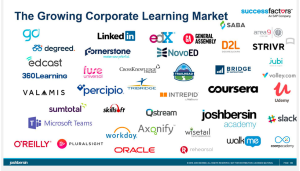
Covid-19 Scholar Peer Hub
The Geneva Learning Foundation (TGLF) is a Swiss non-profit with the mission to develop, trial, and scale up new ways to lead change to tackle the challenges that threaten our societies. To provide support to immunisation professionals, TGLF is starting a new COVID-19 focused programme, supporting immunisation professionals as they reshape programmes in response to the global pandemic. C3L is working in partnership with TGLF to evaluate the programme's effectiveness and contribute to ongoing decision-making and understanding of the effectiveness of workforce training programmes on public health outcomes. To provide a comprehensive analysis of the programme, the research team developed an extensive dashboard to track and monitor Scholar's learning progress in the course that together paint a picture of the knowledge creation and spread within the learner network, and also the impact of such exchanges on immunisation programme performance.
To learn more, follow the link to the UniSA press release. https://www.unisa.edu.au/Media-Centre/Releases/2020/covid-19-peer-hub-combats-vaccine-avoidance-amid-pandemic/

Learning analytics framework for delivering effective training experience for medical professionals
Experiential learning proposes a highly engaging environment in which learners, instructors and mentors interact around team-based projects. The high levels of engagement present in these environments need an equally high level of interaction with teaching and mentoring staff. The key to transform this scenario into an effective learning experience is to provide personalised feedback to learners throughout their journey. Practera offers a virtual environment to enact this type of experiences. Learners undertake their real-world, collaborative projects, upload their deliverables, inputs and reflections and a team of mentors and reviewers offer personalised feedback for the next stages. This feedback cycle requires a comprehensive knowledge of the student and is challenging to deploy for large student cohorts. Practera and the Centre for Change and Complexity (C3L) at the University of South Australia are working together to explore how learning analytics methods can support this teaching environment, identify patterns of engagement, connect the knowledge with the right type of personalised support, and evaluate its impact.
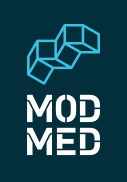
Learning analytics approaches for assessing the attainment of graduate qualities
Rapid changes in the modern economy caused by globalisation, job automation and advanced technologies, have placed increased emphasis on developing transferable qualities, skills and attributes, collectively known as graduate qualities. The transition from a curriculum that emphasises knowledge to the development of 21st-century literacies aims to enable students to be better prepared for, and capable of, navigating the changing and increasingly complex workplaces. Schools and universities are challenged by the need to develop, measure and report on student progress and attainment of graduate qualities and competencies.
In collaboration with Trinity College, an independent school in Gawler, SA, this project focuses on combining survey and learning trace data to assess students development of graduate qualities, in particular students' self-regulated learning (SRL) and meta-cognition. The project leverages already existing student survey data and other data sources to establish a foundation of analytical benchmarks that can be used to inform the development and attainment of graduate qualities at Trinity College. Graduate qualities have been identified as one of the critical areas that can drive the continuous improvement of the College’s teaching and learning practice. The primary goal of this project is to examine the validity of the existing surveys and their use for assessing students’ SRL and metacognitive skills.
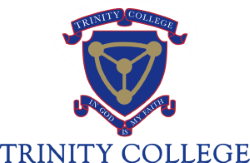
Promoting and Developing Self Regulated Learning Mindsets and Skills in First-Year Students
Self-regulated learning (SRL) has a positive and long-lasting impact on academic development, employability and career progression of students. Despite the demonstrated importance of SRL education has long struggled to develop and assess practices that can promote student self-regulation skills. This project is designed to raise awareness of the importance of student SRL and promote the development of these skills. The project builds on our prior work to also establish empirical measures of SRL progression that are student centric and scalable.
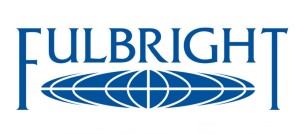
Epic Challenges
Students in the 21st century require a combination of soft skills and STEM-based skills to ensure a successful transition into university and the emerging workforce. This course is designed with a project-based curriculum coupled with an enterprise education focus. The innovative nature of the curriculum involves student engagement in an ‘Epic Challenge’, an open-ended, real-world complex problem which does not have an existing or known solution and is multi-disciplinary by nature.
Students will participate in a connected learning environment and work in teams to design their solution for the specified challenge. Through this, students will develop their teamwork skills, knowledge capture skills (problem definition and problem immersion), creative concept generation (creativity tools, creative ideation, concept evaluation), rapid concept development (analysis, prototype, test, design/optimise), and, finally, concept evaluation and selection. Students will also develop STEM skills such as engineering design practices, mathematical literacy, technical expertise and empirical data analysis.
During this program, students will become familiar with space programs, providing them with opportunities to become part of the hub for future space industry development. The final product for this course requires students to present their work in a symposium which will include an audience of real-world engineers and space industry representatives, including NASA astronauts.
Contact person: Dr Rebecca Marrone [email]
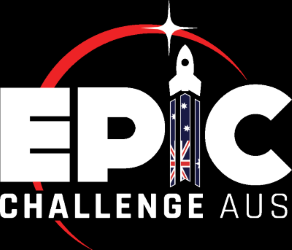
The impact of personalised learning interventions on student engagement in an electronic learning environment
Continuing professional development is one of the most important components of medical education. From the learning perspective there are several conditions that make it unique: professionals need to acquire certain skills both in their domain of knowledge, but also soft skills, the acquisition is strongly influenced by the environment, and requires flexible yet effective structures to guarantee its success. ModMed is a company that offers engaging, dynamic learning experiences for health professionals. Audits and feedback are crucial in CPD, and scaling the delivery of these elements is challenging. ModMed and the Centre for Change and Complexity (C3L) at the University of South Australia are working together to use machine learning algorithms combined with detailed mapping of the curriculum and competencies to support doctors through their CPD with personalised and frequent suggestions to comply with the requirements of the medical regulatory bodies.

The Modern Schooling Project
Contact: Associate Professor Chris Deneen
The Modern Schooling project works with schools to explore effective approaches to technological innovation. Change management and leadership as well as models of teacher professional development are key, research-informed areas for working to achieve sustainable innovation at scale. Within these areas, researchers and experts will partner with the school, to focus on topics and approaches highly relevant to the school’s priorities. These may include: online pedagogies, technology innovations, assessment, leadership, professional development and contextually relevant school change. Modern Schooling will also involve project researchers working with school leadership teams to co-design strategically informed pathways for effective innovation in project- and school-relevant areas, such as flexible lesson delivery or exploring appropriate uses of AI (examples). Prior to commencing related research, activities will be fully agreed upon by all stakeholders and appropriate, formal ethical approvals obtained.
Creativity and Assessment in the age AI
Project Lead: Dr. Rebecca Marrone
A key challenge in creativity research is assessment. Objectively scored tests of creativity are highly reliable and valid but are slow and expensive to administer and score. As a result, many creativity researchers default to faster self-report measures of creativity, however, there are obvious weaknesses associated with both approaches. Recent research has begun to explore the use of computational approaches to address these limitations. This presentation will present research demonstrating that algorithms can assess creativity as accurately as human judges but with quicker speeds and at a fraction of the cost. Thus addressing the weaknesses associated with assessment and demonstrating the practicality of automated creativity assessment.
ePortfolio Industry Partnership (ePIP)
Contact: Associate Professor Chris Deneen
Effective representation of graduate achievement to external stakeholders is an essential but challenging goal of higher education. Achievement must be represented in ways that make sense to potential employers and align with their interests. It is essential, too that advancement and conferral of degrees accurately represent attainment, in relation to the aims of the program and mission of the university.
Authentic and meaningful achievement are aspirations for the main stakeholders being the student, university, and industry. But these three groups often lack understanding of the perspectives of the others and how they’re perspectives are made manifest. All three groups typically have little understanding of the needs of the other parties and what is meaningful to them. Therefore, there is a need for an approach that reflects a route to a) communication and aligned understanding of the three groups, b) serves the intentions of all three and c) is sustainable beyond a program.
Mapping Landscapes of Expertise: Augmenting knowledge networking with AI
Contact: Professor Maarten de Laat
In this project we will prototype AI and digital technologies (data processing and visualisation) to map dynamic landscapes of expertise for the corporate sector. Katapult provides collaboration tools like a match-making map, to provide access to networks and help unlock organisational capability to promote innovation. However, high market volatility results in rapid changes of knowledge and expertise and in this project, we aim to augment these collaboration tools by prototyping AI and digital technologies (data processing and visualisation) to map dynamic landscapes of expertise as they develop over time. Such a data visualisation will reflect area’s of expertise and uses available public digital data to keep representations up-to-date. As a result, this prototype will bring together an overview of the demand for and supply of expertise and will serve as an input for an interactive match-making tool for Katapult to help organisations and professionals to build networks to effectively respond to new market opportunities.
THRIVE
Contact: Professor Sally Brinkman
THRIVE is a large-scale, multi-country research and policy programme which aims to build understanding of Early Childhood Development (ECD) service delivery models and how they can transform to significantly improve early childhood health, nutrition, education and wellbeing outcomes in low- and middle-income countries. THRIVE seeks comprehensive, practical answers about how ECD systems innovate, improve, and better serve children and communities.
For the team at UniSA, THRIVE represents an opportunity to improve the conditions for children in Kiribati through the implementation of carefully planned projects and upgrading of existing systems. The current pattern of increased globalisation, migration, and impact of climate change, coupled with ministries which are keen to improve child development conditions lends Kiribati to be a prime location for directed foreign aid. Most importantly, THRIVE will serve as an opportunity to flesh out and develop Kiribati’s capacity for investment activities.
Leveraging Data to Support Young People’s Education and Wellbeing
Contact: Professor Sally Brinkman
This project will create an enduring database linking education and wellbeing data from multiple databases, covering such areas as enrolment, attendance, behaviour management, academic achievement, and student wellbeing and will be made freely accessible to researchers. Over time, this will paint a fuller picture of the students’ journey throughout their school life. A collaborative, coordinated approach will maximise the comparability and use of all these data from different states and territories and will be made sustainable through FAIR data principles.
Read More >
Preserving Student Privacy while Enabling Learning Analytics & AI research
Project website: https://trustedanalytics.com.au
Contact: Dr Srecko Joksimovic, srecko.joksimovic@unisa.edu.au,
C3L is leading UniSA engagement in one of the sixteen projects awarded a total of $30 million by the Commonwealth’s Cooperative Research Centres Projects (CRC-P) Round 7 grants program. The CRC-P, focused on privacy and learning analytics, is led by Practera, a Sydney-based EdTech start-up and long-term collaborator with C3L researchers. Additional collaborators in the project include CSIRO’s Data61, global education company Navitas, Education Technology and innovation industry hub EduGrowth, and cyber security solution provider Cybermerc.
The project will develop a platform that allows educational providers to share data and algorithms while still preserving the privacy of student data records (Figure 1). This will enable education institutions and companies to better support the learning needs of students through the use of learning analytics and artificial intelligence algorithms. This will provide teachers and students with insights into what works during learning processes and how to improve self-regulation, goal setting, and learning strategy selection. The solution will be developed and tested within Practera’s experiential learning platform, which supports work-integrated learning programs, internships and skills credentialing.
Previous engagement between C3L and Practera was centred around developing personalized, analytics-driven interventions that supported students at risk of not completing the program and evaluating the impact of these interventions. A particular focus was on understanding collaboration and cooperation in team-based projects and deploying interventions to improve students’ teamwork skills. This CRC-P engagement continues this work, with the additional element of adapting previously developed algorithms to work on privacy-enhanced datasets produced by Data61. This will involve direct collaboration between Data61 and C3L to iteratively adapt their algorithms. Key activities for C3L will be:
- Development of personalised, analytics-driven interventions to support individual and collaborative learning and work
- Validate baseline interventions
- Collaborate with Data61 to adapt algorithms for privacy-preserved data
- Validate novel algorithms against the baseline
Trust in Algorithms
Algorithms are being adopted by institutions, organisations and governments to crunch the vast amounts of information amassed by these social sectors. More importantly, algorithms have great social power as they are being trusted to assist in decision making in high and low-stake contexts. However, given that algorithms are of a statistical nature and have an associated degree of explainability, it can be entertained that a person's level of statistical literacy may play part in the level of trust placed on algorithms. Statistical literacy is essential in that it is needed to make sense of probabilistic and statistic related information. This research line examines the role of statistical literacy in trust in algorithms.
Contact person: Dr Fernando Marmolejo-Ramos [email]



